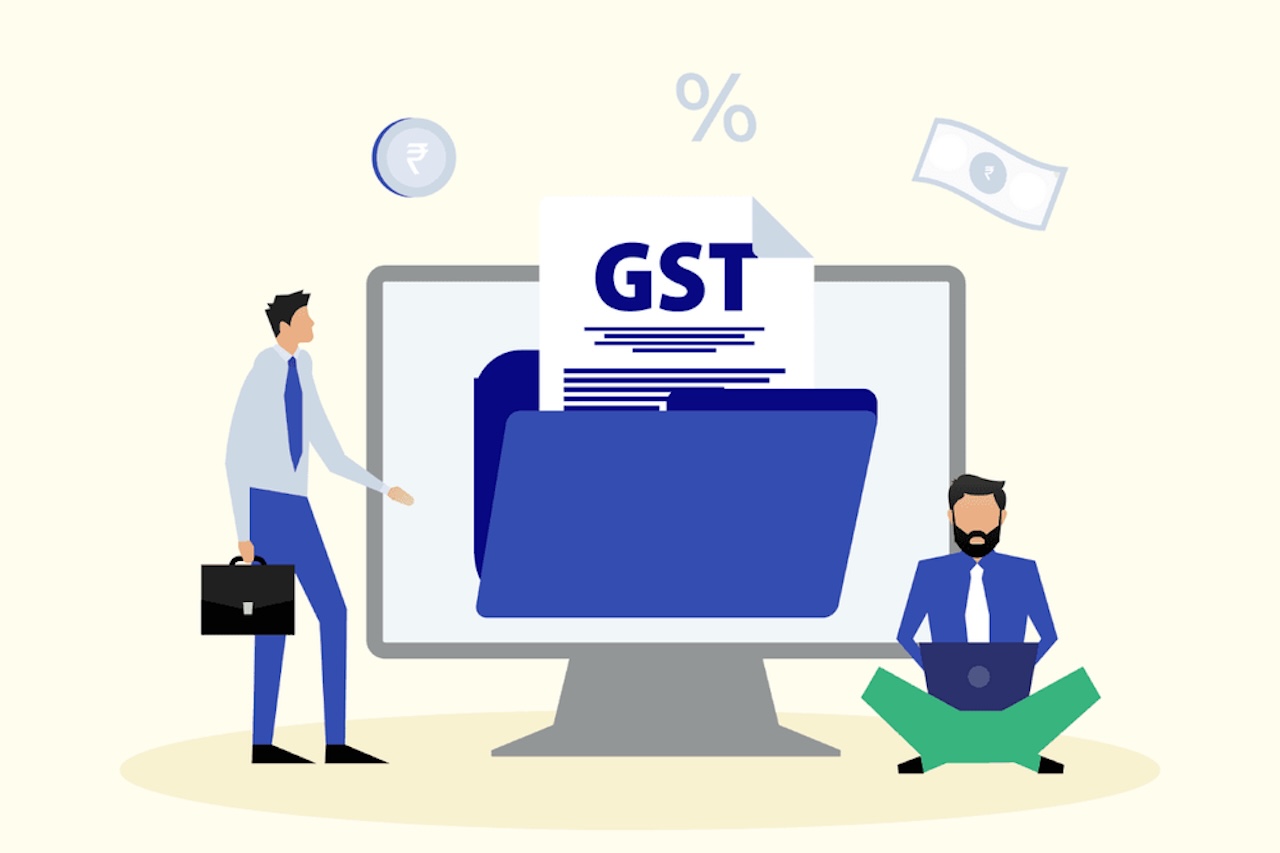This blog outlines the essential role Chartered Accountants play in GST registration and return filing. It covers their expertise in documentation, tax classification, ITC reconciliation, and return accuracy. It will gain insights into how CAs ensure compliance, reduce penalties, and support broader tax efficiency goals.
Quick Links
Introduction
India’s goods and services tax (GST) was introduced to reconcile the country’s indirect tax system, but it continues to meet operations and compliance challenges for many businesses. From continuous understanding of political updates to the completion of submission lines, the remaining tasks require more than basic knowledge. In this developed regulatory environment, Chartered Accountants (CAs) play an important role. Their expertise ensures accurate GST registration, submission of time and a strategic tax plan – makes them inevitable partners for companies aimed at compliance and effectiveness.
The Complexity of GST for Businesses
Despite being designed as an integrated tax system, GST in India still presents more layers of complexity for companies. The majority of rules in different states and regions mean that businesses should understand different requirements for compliance. Adding this, the dynamic nature of GST – with frequent changes in prices, alerts and procedural updates – requires attention and customisation.
In addition, companies should handle many technical requirements, including the efficient use of digital invoice generation, e-way billing systems and GSTN portals. Failure to comply with them can have serious consequences, including non-transport, such as fines, penalties, blocked incoming tax credit, or even cancellation of GST registration. These challenges emphasize the need for expert intervention to ensure continuous compliance.
Role of Chartered Accountants in GST Registration
Chartered Accountants play an important role in ensuring a smooth and error-free GST registration process. They begin with an appropriate evaluation and advisor, and help companies determine whether GST registration is compulsory on the basis of sales, business model or intergovernmental transactions. This guidance prevents unnecessary delays or errors in accordance.
When GST registration is considered necessary, CAs help with the preparation and verification of the document. Sensor PAN, address certificate, bank details and business documents are accurate and GST criteria. It reduces the possibility of rejection or starting.
They manage and follow the electronic application, send the application through the GST portal and monitor its progress. If an explanation or notice is issued, CAs respond immediately and properly.
Even after providing registration, the support does not end. CAs guide according to regulation, such as configuration of invoice formats, understanding of the compliance timeline line and activating the codes that are the correct submission of businesses for GST matches for a time.
Role of Chartered Accountants in GST Return Filing
Chartered accountants play an important role in streamlining the GST return filing process for companies. They start by securing data collection and organizations, confirming sales, purchases, invoices and payment details, maintained accurately in the appropriate format for submission of returns.
Their expertise in the HSN/SAC code classification helps companies classify goods and services properly and avoid penalties and disparities in the GST submission.
One of his important tasks is Input Tax Credit (ITC) and reconciliation management. CAS ensures that ITC is claimed by corresponding to the data purchased with a supplier delivery (Gstr-2B), thus reducing the ITC loss and avoiding match problems.
They handle different GST returns based on GSTR-1, GSTR-3B, GSTR-9 and other business types and sales. This ensures accuracy and actuality in all compulsory filings.
CAs also provide the calculation of tax liability and payment advisor, which helps with timely payment to companies to determine GST, adjust ITC and avoid interest or penalties on time.
To keep companies on track, CAs manage a match calendar and ensure that each GST deadline is met. This organised approach protects businesses from fines and lapses.
When it comes to auditing or investigation, CAs help respond to GST notifications and assessments, prepare and clarify the questions that the GST department raises, thus preserving the compliance with the business.
Broader Value Proposition of CAs in GST Management
In addition to regular compliance, chartered accountants provide strategic benefits for companies in effectively handling GST. What can his role expect from a tax law service, and provide both legal awareness and financial insight?
Their participation helps with risk reduction, as they identify and improve potential GST errors before continuing in legal or financial obligations.
CAs support cost optimisation requirements to require full incoming tax credit (ITC) to companies, avoid late fees and structure tax efficiency operations – a reliable tax will also emphasise legal service.
They provide strategic recommendations, help companies coordinate their GST practice with extensive economic goals, supply chain models and pricing strategies.
By handling complex filing, updates and comments, CAs provide significant time savings, so that business owners can focus on core operations without tax formalities.
Updated GST law, circular, and political changes ensure that the business is compliant in a changing regulatory scenario to create constant guidance from a LOB service and construct a constant guidance from the lawyer service.
Conclusion
In today’s GST framework, chartered accountants are not just compliance facilities – they are strategic assets. Their role offers GST registration, return submission, ITC reconciliation and legal representation, and requires accuracy and insights. Supported by tax lawyers at the service level, ensures CA regulatory adaptation, reduces economic risks and adapts the tax flow.
They protect businesses under audit and inquiries, and retain compliance at each stage. With its support, businesses can navigate with GST obligations, avoid penalties and focus on development. In short, a partnership with an approximately brings both regulatory power and strategic clarity for your GST management.







